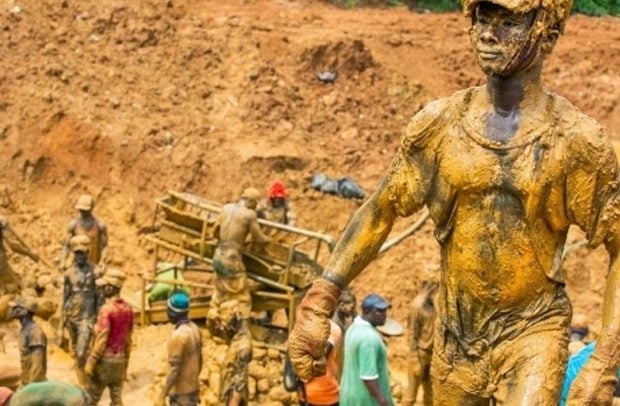The Graduate Students’ Association of Ghana (GRASAG) has announced its decision to participate in a protest against illegal mining, commonly referred to as galamsey. Scheduled for October 11, 2024, this collective action aligns them with the Catholic Bishops’ Conference and the Catholic Church, highlighting the broader societal response to the critical issues posed by galamsey activities. The rampant illegal mining operations have resulted in significant environmental degradation and socio-economic challenges across the nation, prompting GRASAG’s proactive stance. This decision, made public in a release on October 7, 2024, underscores the urgency of addressing the issue, as articulated by the association’s National President, Mr. Emmanuel Owusu, and General Secretary, Mr. Rafiu Anwar-Sadat.
GRASAG’s declaration is rooted in the belief that galamsey operations pose a severe threat not only to Ghana’s natural resources but also to its citizens’ well-being. With over 100,000 student members, the association expresses particular concern for student welfare, as many rely on local water sources that are jeopardized by these illegal mining activities. The association’s commitment to advocating for environmental protection reflects a growing awareness among Ghana’s youth about the significance of sustainable practices and responsible governance in safeguarding the future of the country. By linking arms with the Catholic Church, GRASAG aims to elevate their collective voice in calling for a more vigorous government response.
The organization emphasizes the importance of a united front in the fight against galamsey, criticizing the ongoing threats to land and water resources that support communities and agriculture. The environmental damage caused by politically and economically motivated illegal mining is underscored in GRASAG’s statement, revealing a consensus on the need for stronger action from governmental and non-governmental entities alike. By framing their involvement as a fight for accountability and responsible governance, GRASAG aims to mobilize support from all segments of society, urging Ghanaians to join in the peaceful protest to make their voices heard.
As it prepares for the demonstration, GRASAG reaffirms its values of responsibility and ethical leadership, calling for immediate and effective measures to combat galamsey. The urgency in their message reflects a desire not only for reform but also for a transformative approach to environmental management in Ghana. This proactive stance serves to inspire others within the academic community and beyond to engage in this critical and timely issue, driving home the point that the future of the nation’s environment and natural resources is at stake. By uniting with the Catholic Church and other organizations, GRASAG seeks to foster a larger coalition for change, bringing together citizens, civil society, and policymakers.
In light of these developments, GRASAG’s leadership invites all citizens to embark on this peaceful protest, emphasizing the right and responsibility of every Ghanaian to speak out against practices that undermine the health of their environment. This call to action is part of a larger movement that aims to reclaim Ghana’s natural spaces from the harmful effects of illegal mining endeavors. The association’s resolve reflects a commitment to creating a sustainable future and safeguarding the ecological integrity of the nation for generations to come.
In summary, GRASAG’s decision to participate in the anti-galamsey protest on October 11, 2024, highlights the urgent need for action against environmental degradation caused by illegal mining activities in Ghana. By joining forces with the Catholic Bishops’ Conference and the Catholic Church, GRASAG seeks to amplify calls for accountability and effective governance to protect natural resources. Their involvement represents a growth in student activism and commitment to sustainable practices, as they urge all Ghanaians to unite in this critical movement for change.














